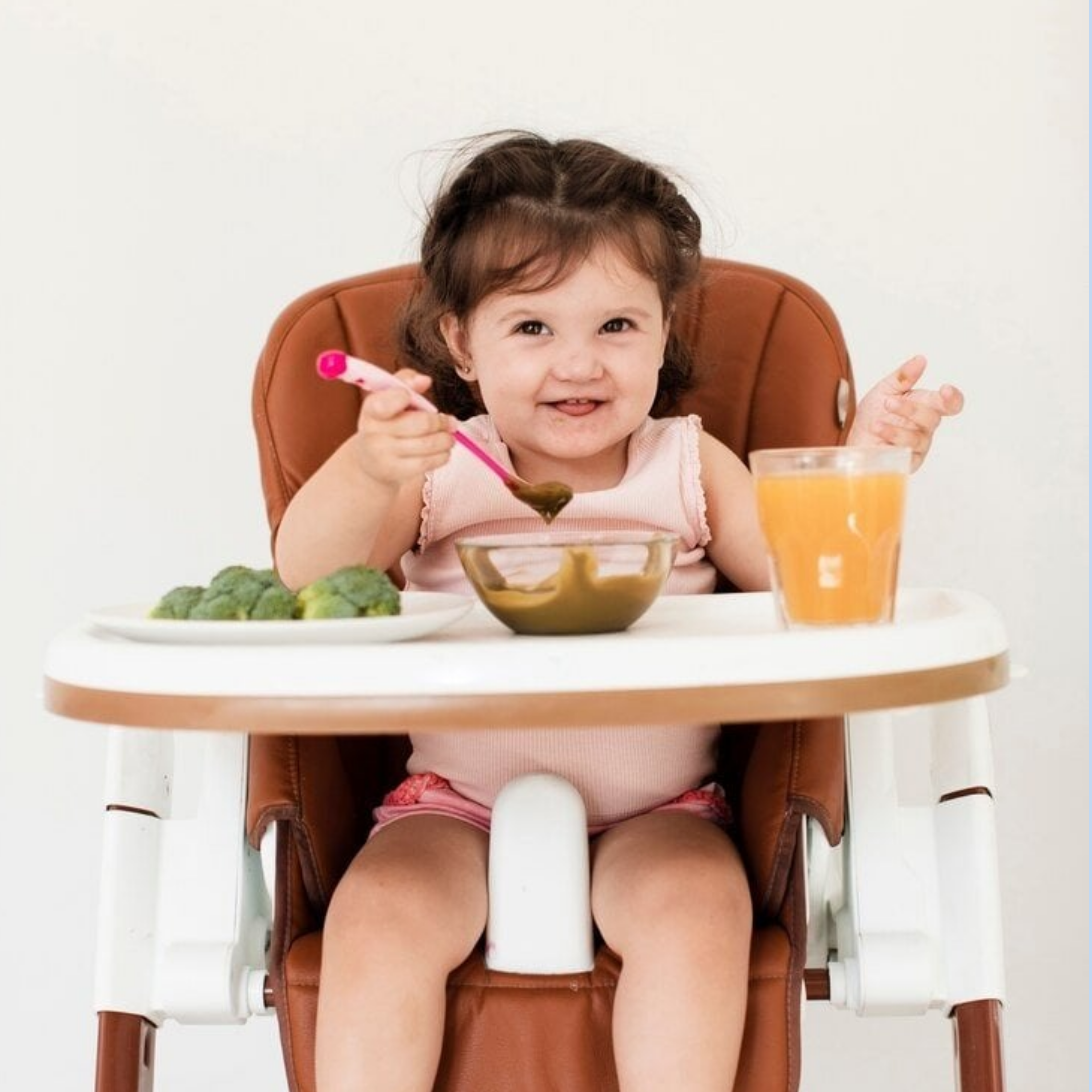
When and How to Introduce Solids to Your Baby: A Comprehensive Guide
Introducing solids to your baby is an exciting milestone that opens up a whole new world of flavors and textures. However, knowing when and how to start can be confusing.
Here’s Neubaby's guide to help you through this important stage of your baby’s development.
When to Start Introducing Solids to Your Baby?
Age Guidelines

The general recommendation is to begin introducing solid foods when your baby is around 6 months old. At this age, most babies have developed the necessary skills to handle solids, including:
- Head Control: Your baby should be able to sit up with minimal support and control their head.
- Interest in Food: They may show interest in what you’re eating, reaching for food, or opening their mouth when offered food.
- Decreased Tongue Thrust Reflex: This reflex, which pushes food out of the mouth, usually decreases by this age.
Signs of Readiness

Look for signs that your baby is ready for solids, including:
- Sitting Up: Your baby can sit up straight in a high chair with good neck and back support.
- Curiosity About Food: They watch you eat and may reach for your food.
- Ability to Chew: Your baby can move food to the back of their mouth and swallow.
How to Introduce Solids?
Start Simple
Choose the Right Foods: Begin with single-grain cereals (like rice or oatmeal) mixed with breast milk or formula. You can also start with pureed fruits (like bananas or avocados) and vegetables (like sweet potatoes or carrots).
Texture Matters: Start with smooth purees and gradually introduce thicker textures as your baby becomes more comfortable.
One Food at a Time: Introduce one new food every 3-5 days to monitor for any allergic reactions. Common allergens include eggs, peanuts, dairy, and wheat.
The First Meal

-
Timing: Choose a time when your baby is not too hungry or tired, usually after a milk feeding.
-
Environment: Create a calm and positive environment. Use a high chair to help your baby feel included during family meals.
-
Portion Size: Start with a small amount (about 1-2 teaspoons) and let your baby explore the food. They may not eat much at first, and that’s perfectly normal.
Encouraging Exploration

- Let Them Self-Feed: As your baby grows, allow them to explore food with their hands. This encourages self-feeding and helps develop fine motor skills.
- Introduce Variety: Once your baby is comfortable with a few foods, start introducing a wider range of fruits, vegetables, and grains.
Safety First

-
Choking Hazards: Avoid foods that pose a choking risk, such as whole grapes, nuts, and hard pieces of food. Always supervise your baby during meals.
-
Texture Transition: Gradually transition from purees to more textured foods as your baby becomes adept at chewing.
Introducing solids to your baby is a gradual process that should be guided by their readiness and interest. Start around 6 months of age, focus on simple, single-ingredient foods, and pay attention to their cues. Remember to create a positive feeding experience and prioritize safety.
With patience and enthusiasm, you’ll help your baby explore the exciting world of food. Enjoy this delightful journey together!
If you're looking for more exciting baby food & snack recipes, check out this blogpost.




